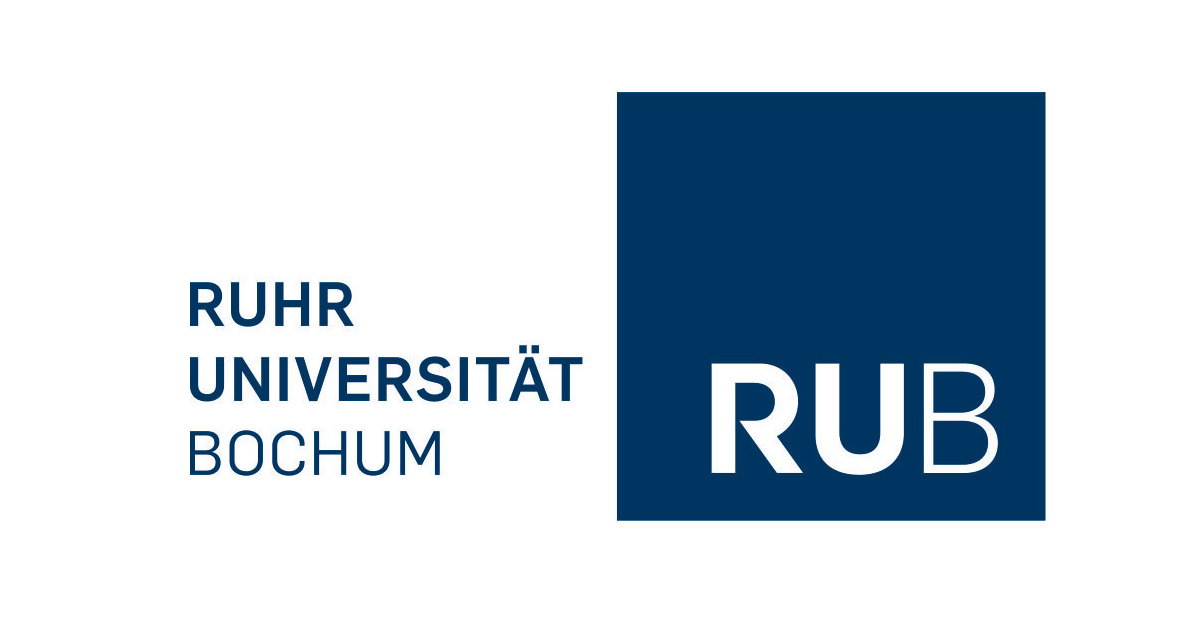RUHR-UNIVERSITAET BOCHUM (Germany)

Founded in 1965, Ruhr University Bochum is a place for innovative research, teaching and transfer. Located in the heart of Europe in the dynamic metropolitan region of the Ruhr. Ruhr-Universität Bochum with its 20 faculties is home to 43,000 students from over 120 countries who study in some 190 Bachelor and Master programmes. As a comprehensive campus university, it unites the arts, humanities,social sciences, natural sciences, engineering and medicine. RUB was one of the first universities in Germany to introduce international bachelor's and master's degrees, which replaced the traditional German Diplom and Magister. Currently, the university offers a total of more than 180 different study programs (18 Double and/or Joint Degree) from all academic fields represented at the university. Its scope is unique in Germany: research at Ruhr University Bochum is the most wide-ranging of any university in Germany. With its concept of excellent collaborative as well as individual research, Ruhr University is one of the highest performing universities in Germany. Under the Excellence Initiative and the Excellence Strategy, national competitions to promote world-class research, it achieved notable success with its university-wide Research School and two Clusters of Excellence: RESOLV (‘Ruhr Explores Solvation’). The objective of the cluster is to develop solvation research as a new research discipline and provide the community with valuable knowledge for future applications. |
|
In 2007, RUB joined forces with its neighbouring universities in Dortmund and Duisburg-Essen, to form the University Alliance Ruhr (UA Ruhr) - now one of the largest and most productive scientific associations in Germany. Joint UA Ruhr Liaison Offices in New York, Moscow and São Paulo further promote RUB’s international cooperation and student and scholarly exchanges. The Ruhr Area is not only Germany’s largest academic hub, but also an epicenter of innovation that fosters close interaction between academia and the private sector, and RUB provides students and researchers from around the world with an open gateway to the region. At RUB´s technology campus, a unique ecosystem related to Engineering 4.0 and Cyber Security has evolved. It comprises the Centre for the Engineering of Smart Product Service Systems, a smart Learning Lab, the IT security incubator Cube 5, the Center for Advanced Internet Studies and the upcoming Max Planck Institute for Cyber Security and Privacy, to name but a few. Embedded in a powerful industrial areas with a long tradition, the Department of Mechanical Engineering focusses on providing new, innovative ideas, insights and concepts to the competitiveness of the Nort Rhine-Westphalian and German plant engineering and machinery industry to improve and contribute to the ongoing structural changes. Chair for Digital Engineering succeeding the Chair of Information Technology (IT) in Mechanical Engineering (ME) has been dealing with the topics of Virtual Product Development, Virtual/Augmented Reality, and Product Life Cycle Management in research and teaching since 1994 and even before. One of the first world-wide available 3D-CAD systems was developed at the institute in the 1980s. The chair for IT in ME (the predecessor to the current Chair for Digital Engineering) has carried out numerous projects, publically funded as well as industry co-operations, in the field of PLM, virtual product development and engineering education in the recent past. The longest lasting cooperation project spanned over 20 years of consulting for engineering process management for an automotive supplier. In 2014 the chair renewed the existing laboratory for identification technologies with the founding of the Smart Data Center, in which students and scientific staff do research in the fields of Mixed Reality applications and Internet of Things technology. The funding was granted via the RUB’s central infrastructure program and resulted in many dozens of theses, studies and demonstration scenarios. A major cooperation revolves around our partners in the project “Excellent Teaching and Learning in Engineering”. Together with colleagues in the Virtualisation of Process Technology Group and the Chair of Applied Laser Technologies, the creation of virtual explorative learning environments for advanced undergraduate projects is currently being worked on. The chairs projects also benefit from the cooperation with the RUB’s central Centre for Teaching and Learning. |









